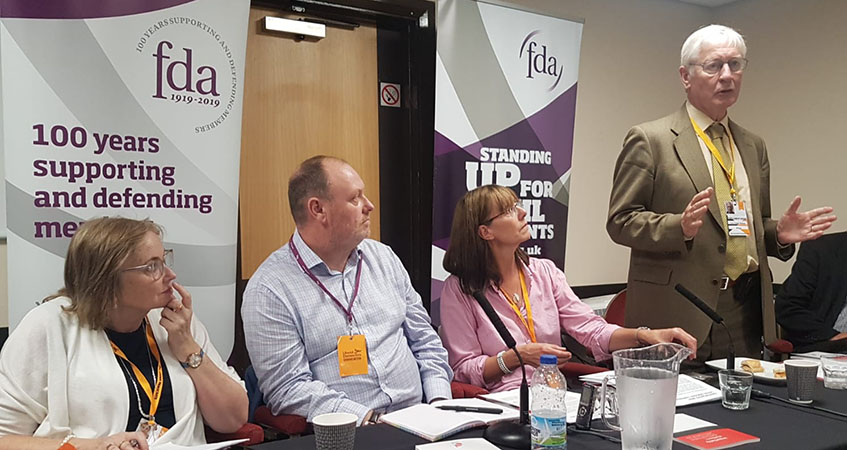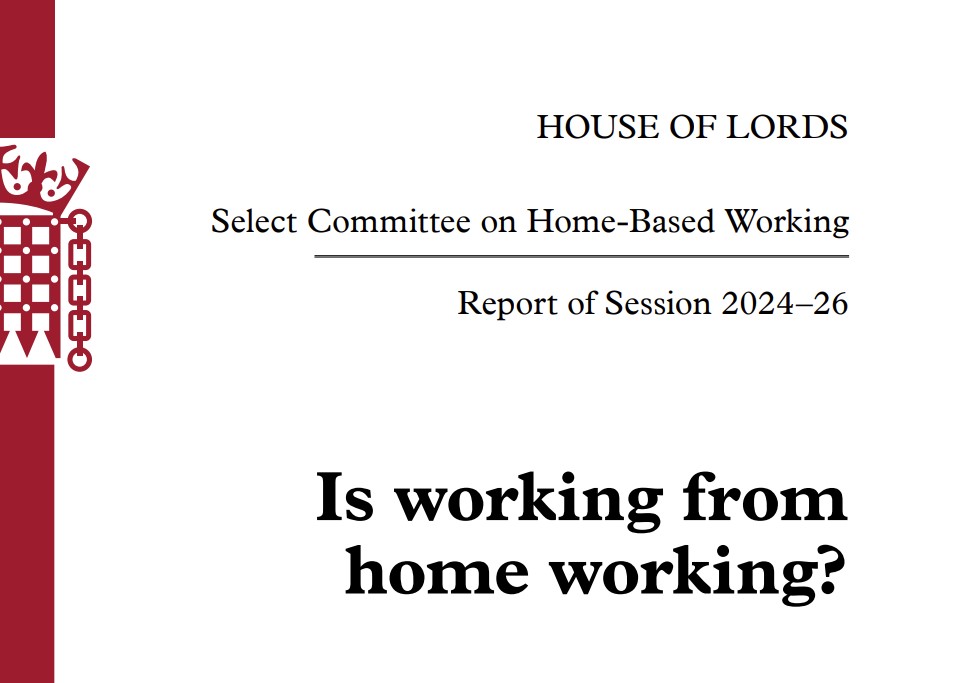FDA to Liberal Democrats: You have a “duty” to stand up for civil service

“The one thing I would say is that I think defending an impartial civil service is an onus on us all. Not many of you or your politicians have attacked the civil service, but neither have you really ran to its defence.”
Speaking at the Liberal Democrat party conference, FDA General Secretary Dave Penman’s words underscored the fundamental ask of the union’s impartiality campaign: that politicians use their power to actively defend civil servants, and civil service principles.
Penman was joined by Liberal Democrat Lords Spokesperson Lord Wallace, Baroness Tyler and Smith Institute Deputy Director Steve Barwick at a panel event to discuss civil service impartiality. Chaired by The Guardian’s Jane Dudman, the panel discussed the themes of the recent FDA-commissioned Smith Institute Impartiality Matters report. The panellists agreed that this key value is under threat, and more must be done to protect it.
Barwick said that civil servants were being treated like a “political football” recently, described simultaneously as too left or too right, too “remain” or too “Brexit”. There’s never been a time, he continued, that impartial advice was more needed.
Lord Wallace then explained that “in order to have effective government, you have to have evidence-based government.” “Part of what’s broken down is that ministers have lost their respect for evidence quite often,” he stated, “[they’ve] certainly lost their respect for explaining to the public what they’re actually doing – and that has put strains on the civil service which damage our entire structure of government and begin to damage our constitution.”
Moreover, he argued, the civil service “represents the long-term national interest. Part of what’s gone wrong with our politics is that too many of our politicians only think about the next elections. We do need always to have people who think about ten years ahead, fifteen years ahead, twenty years ahead. The best of our civil service tries to do that, and that’s why we should defend them.”
Baroness Tyler, a former civil servant herself, listed several reasons a permanent, impartial civil service was crucial for the country. The continuity, she said, was important, because “if the whole of the civil service was cleared out each time after a change of administration, that loss of corporate memory would be dreadful”.
“There’s also something about keeping government honest,” she continued, and about “attracting really good people to civil service.” “Would they come and stay,” she wondered, if after every election they could expect to be “thrown out”?
She argued the debate about the civil service should take on an international perspective, where we look at how the problems an increasingly politicised civil service – like the ones to be found in Australia and Canada – are causing.
Penman then addressed the room, to explain how the civil service has been under attack for “almost a decade”. “Absolutely Brexit has been a lightning rod for it” in more recent times, he noted, but the history of this traces back to Francis Maude, former Minister for the Cabinet Office. “He sought to try to constantly both publicly and privately undermine the role of the civil service,” the General Secretary said, “and he battled the civil service over that period of time.” During Maude’s time in power, “the influence of politicians over the selection of the most senior civil servants increased and ministers were allowed to introduce what they called ‘extended ministerial offices’, which started to look at… surrounding ministers not with civil servants but by political appointments.”
Penman then explored recent attacks made on civil servants from across the political spectrum, as both hard-line Brexiteers and remainers have accused these members of staff of “bias assessment”, or argued that they should go against the will of government – fundamentally forsaking the civil service code.
Acknowledging that Lib Dems have not, as a group, been aggressive towards his union’s members, the General Secretary still reminded all present that they have if they “believe in an impartial civil service, and believe it is a cornerstone of effective government and democracy”, that they have a “duty to stand up and defend it.”
These speeches were followed by a lively Q&A, in which Penman had the opportunity to set the record straight on Dominic Cummings’s perceived power. The special advisor, he explained, answers to the Prime Minister, and the Prime Minister should be held to account for his actions.
These comments follow Penman’s recent letter to Johnson, responding to reports that the Prime Minister would refuse to ask for the EU for an extension on Brexit – contrary to the law. The General Secretary called on Johnson to assure civil servants that they would not be asked to act illegally and break the civil service code.
Interested in the debates from the other party conferences? Read the reports from the Labour, Conservative and SNP fringe events.
Related News
-

Caring support: findings from the FDA’s 2025 carers’ survey
Five years have passed since the FDA last surveyed its members with caring responsibilities about the issues they face at work. FDA National Officer for Equality, Diversity, and Inclusion, Amelia Dowler, shares significant findings from our latest survey, and a preview of recommendations and guidance from the upcoming carers’ report.
-

Lords Committee report highlights lack of evidence behind civil service 60% office working mandate
A new report from the House of Lords Select Committee on Home-Based Working, which features evidence from the FDA, says the government should lead by example with good hybrid working practices within the civil service.
-

2025 Wendy Jones Equality Award winner: Chloé François-Oatway
Katherine Hutchinson speaks to the winner of the Wendy Jones Equality Award 2025, Chloé François-Oatway.